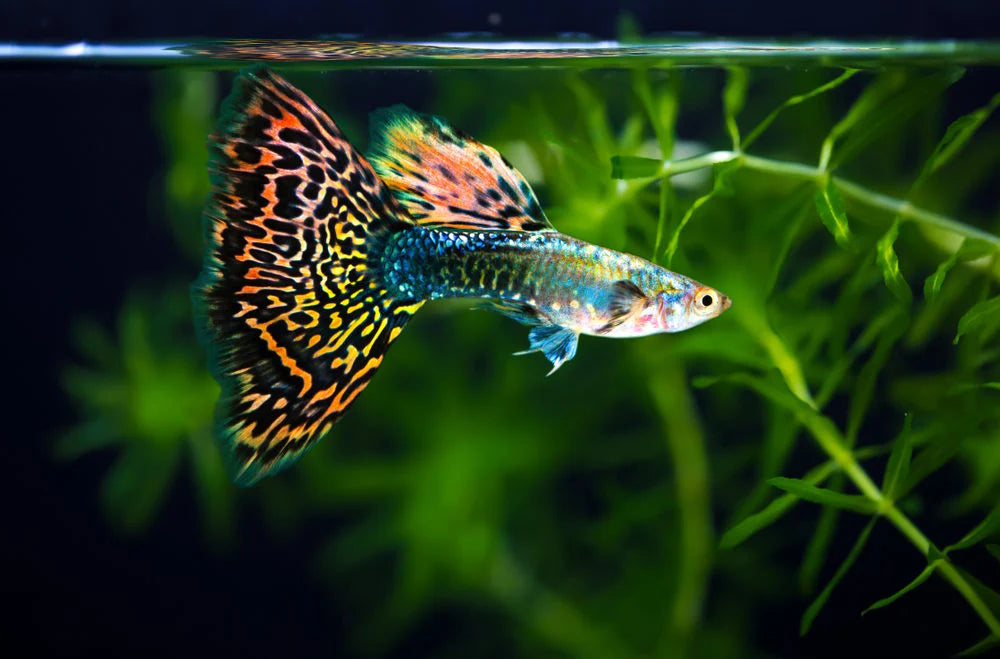
The differences between freshwater fish & saltwater fish
Aquarium fish are a popular pet for many people around the world. However, when it comes to choosing fish for an aquarium, one of the biggest decisions is whether to go for freshwater or saltwater fish. Both types of fish have their own unique characteristics and requirements, so it's important to understand the differences between them before making a decision.
Water Chemistry
One of the biggest differences between freshwater and saltwater aquarium fish is the water chemistry. Freshwater fish require water with a pH level between 6.5 and 7.5, while saltwater fish require water with a pH level between 8.0 and 8.4. Additionally, saltwater fish require water with a higher salinity level than freshwater fish. Maintaining the proper water chemistry is crucial for the health of fish in an aquarium. It's important to use the appropriate water treatment products and to regularly test the water to ensure that the pH, salinity, and other chemical levels are within the appropriate range.
Fish Diversity
Freshwater aquarium fish come in a wide variety of colours, sizes, and shapes. They are generally easier to care for than saltwater fish, making them a great option for beginners. Some popular freshwater fish include guppies, tetras, and bettas.
Saltwater aquarium fish are known for their vibrant colours and unique shapes. They also tend to be more active and interactive than freshwater fish, making them a popular choice for experienced aquarium owners. Some popular saltwater fish include clownfish, tangs, and angelfish.
Tank Setup
The tank setup for freshwater and saltwater fish can differ significantly. Freshwater tanks typically require a heater to maintain the appropriate temperature, while saltwater tanks require a heater and a chiller to maintain the appropriate temperature and salinity level.
Saltwater tanks also require a protein skimmer to remove organic waste and a substrate to support live rock and sand. In addition, saltwater tanks require more equipment, such as a sump and a refugium, to maintain water quality.
Cost
The cost of setting up and maintaining a freshwater or saltwater aquarium can vary significantly. Freshwater tanks tend to be less expensive to set up, as they require less equipment and specialised materials. However, the cost of fish and decorations can vary depending on the species and quality.
Saltwater tanks tend to be more expensive to set up and maintain, as they require more equipment and specialised materials. In addition, saltwater fish and decorations tend to be more expensive than freshwater fish and decorations.
Maintenance
Both freshwater and saltwater aquariums require regular maintenance to ensure the health of the fish and the stability of the environment. However, the type and frequency of maintenance can differ significantly.
Freshwater tanks require regular water changes and filter cleanings to remove waste and maintain water quality. Saltwater tanks require more frequent and more involved maintenance, including regular water changes, protein skimmer cleanings, and regular testing of water chemistry.
Choosing between freshwater and saltwater aquarium fish requires careful consideration of the differences between the two types of fish. While freshwater fish tend to be easier and less expensive to care for, saltwater fish offer a wider variety of colours and shapes, as well as a more interactive and engaging experience.
Regardless of the type of fish chosen, it's important to maintain proper water chemistry, set up the tank appropriately, provide regular maintenance and feed a balanced diet to ensure the health and happiness of the fish.
At Intan, we are here to provide you with premium fish feed. Our feed is tailored to meet the specific needs of each species. We truly believe every feed can spark positive change and create a future promoting quality, resilience, and well-being. We aim to serve the needs of hobbyists and breeders for the best quality of each species’ unique requirements. To know more about us, check out our Instagram page.
